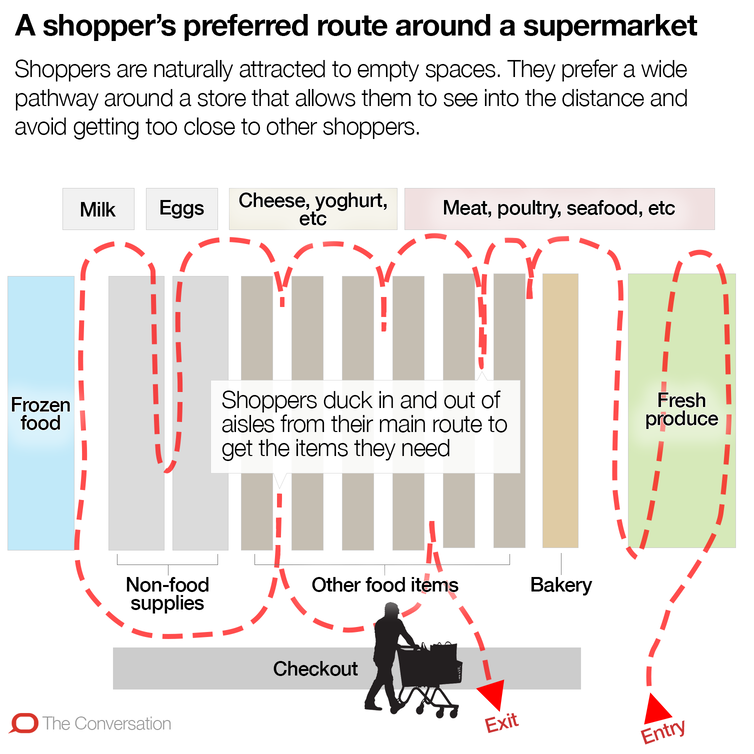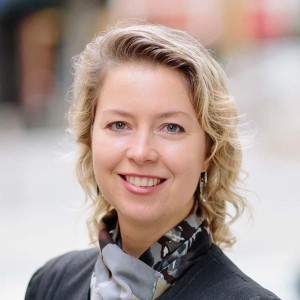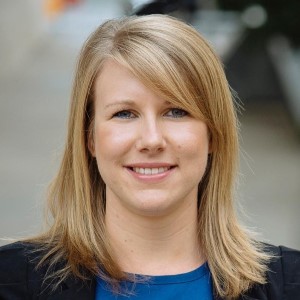01 October 2018

Associate Professor Svetlana Bogomolova
Senior Marketing Scientist at the Ehrenberg-Bass Institute for Marketing Science
Director, The Barossa Co-op
Master by Research, Marketing
PhD, Marketing
Associate Professor Svetlana Bogomolova is an expert shopper. But not just any shopper, as a consumer and social marketing researcher, she knows her way around complex marketing theories and practice, not to mention a bustling supermarket aisle.
Her studies have included extensive research into food choices and shopping habits, including the intricacies of the supermarket landscape and what shoppers are naturally attracted to – and why certain foods are stocked in particular places.
“A typical supermarket stocks over 30,000 items and yet a typical household buys just 300 or so unique products per year. That is, they walk past roughly 29,700 products on shelves without putting any of these in their baskets,” writes Associate Professor Svetlana Bogomolova in The Conversation.
“That’s assuming those shoppers actually walk past the shelves in the first place! Despite a quarter of shoppers claiming to traverse every aisle on a shopping trip, less than 2% of shoppers actually do.
“Shoppers are naturally attracted to empty spaces. They prefer a wide pathway around a store or mall that allows them to see into the distance and avoid getting too close to other shoppers. Thus, the most common route around a store is the perimeter of the store, known as the “racetrack”.
“From that main route shoppers can see down each aisle and duck in and out to get the items they need. Naturally, the shelves at the ends of aisles, known as “endcaps” or “gondola ends”, are the most valuable, simply because more people go past products placed here. So these products get seen (and bought) by more people than products hidden away in the aisles.”

Since graduating from Lomonosov Moscow State University, Svetlana arrived at the University of South Australia in 2003 to study a Master by Research in Marketing, later followed by a PhD in Marketing.
Now as a fully fledge member of the Ehrenberg-Bass Institute for Marketing Science at UniSA, she has nearly two decades of research experience and an extensive repertoire of collaborative cross-disciplinary projects with health researchers where she uses her expertise in consumer behaviour and shopping to promote healthy behaviours.
She also balances her main role as Associate Professor at UniSA with serving as an independent nonexecutive Director on The Barossa Co-op Board – the largest regional retailer and employer in her local Barossa community.
She has been widely published, and attracted competitive industry research funding from health-promoting organisations such as SA Health, Council of Ambulance Authorities, National Pharmacies, and Active Ageing. She was also an ARC Discovery Early Career Research Award Fellow (DECRA).

Since contributing to studies on healthfulness of food choices in supermarkets, increasing physical activity in rural and ageing populations, and raising quality of health services, Svetlana and her Senior Marketing Scientist colleague Amy Wilson, are now turning their attention to health and wellbeing education space where marketing can be used as a force for good.
It is not uncommon to hear marketers accused of being ‘evil’. Marketing is often blamed for overindulgence in unhealthy food, and the overconsumption of new gadgets and games that make us lazy and isolate us from the rest of the world. But, is there another side to marketing?
Svetlana and Amy argue that marketing skills are essential for informing the community about products and services that improve health and wellbeing, enhancing the delivery of those services to benefit individuals and society.
“Many of today’s health practitioners are also involved in the running their own businesses. Think, physiotherapy, podiatry, psychological counselling,” says Associate Professor Svetlana Bogomolova.
“Many wonderful doctors find themselves challenged by the need to attract their own patients and keep them loyal. Hardly any medical school teaches these skills.

“On the other hand, there are a great number of business (or even marketing) graduates, who at some point in their career would find themselves working for a non-for-profit, charity, Government or private organisation, that aims to provide the community with product, services and ideas that promote health and wellbeing.
Realising this unmet need from both sides – for health professionals to get some essential marketing skills, and for business professionals to better understand the health context, Svetlana and Amy have developed a cross-disciplinary course – Marketing for Health and Wellbeing at UniSA. In 2017 the course has been awarded the Best Teaching Team Award reflecting how much students enjoyed the course and the skills it provided.
“As the teaching team are both active social marketing researchers, the new discoveries and insights from the many research projects are also incorporated into the course.”
“Examples include the use of ‘nudging’ strategies to influence dietary choices, how patterns of engagement in physical activity can inform physical activity promotion, helping local producers get better market access, designing a TV campaign for methamphetamine use prevention, encouraging healthy menus for kids in pubs and clubs and much more.”
The course also has a very practical focus, bringing to students a diverse range of industry experts, who share their experiences. These include practitioners from the Red Cross Blood Service, Obesity Prevention and Lifestyle (OPAL, SA Health), Southern Cross Care, Surf Life Saving SA, Jurlique and Janesce skincare lines, Grains and Legumes Nutrition Council, The Barossa Co-op, Sanitarium Health and Wellbeing, Mater Health Services, The Physio Clinic, to just name a few.
Marketing for Health and Wellbeing
Established through extensive research and industry collaborations, this course equips participants with marketing tools on how to better understand customers and to promote both the business and individual behaviour change, and how to evaluate their efforts, all with the ultimate goal of achieving positive change for health and wellbeing services and products.
This course is relevant to aspiring and current industry practitioners from any qualification and employment background. No formal marketing training is required. It is run in an intensive mode over two weeks, with a one week break in between.
Course aim:
To provide students with an understanding of how government, not-for-profit and commercial organisations can apply marketing and consumer behaviour principles to promote behaviour change for improved health and wellbeing.
Course content:
Cross-disciplinary approach to addressing social challenges; principles of marketing; social marketing; fundamentals of consumer behaviour; social marketing intervention; formative consumer research; industry practitioner perspective; tools of communication and behaviour influence; behaviour change metrics and evaluation.
For more information visit: https://unisabusinessschool.edu.au/marketing/marketing-for-healthand-wellbeing/


